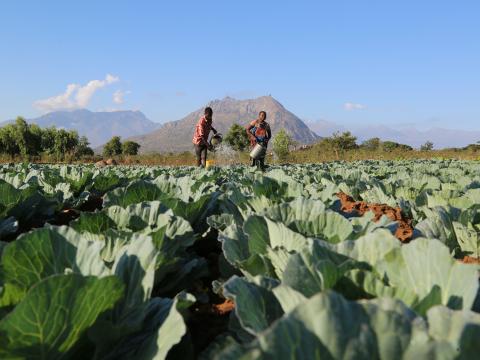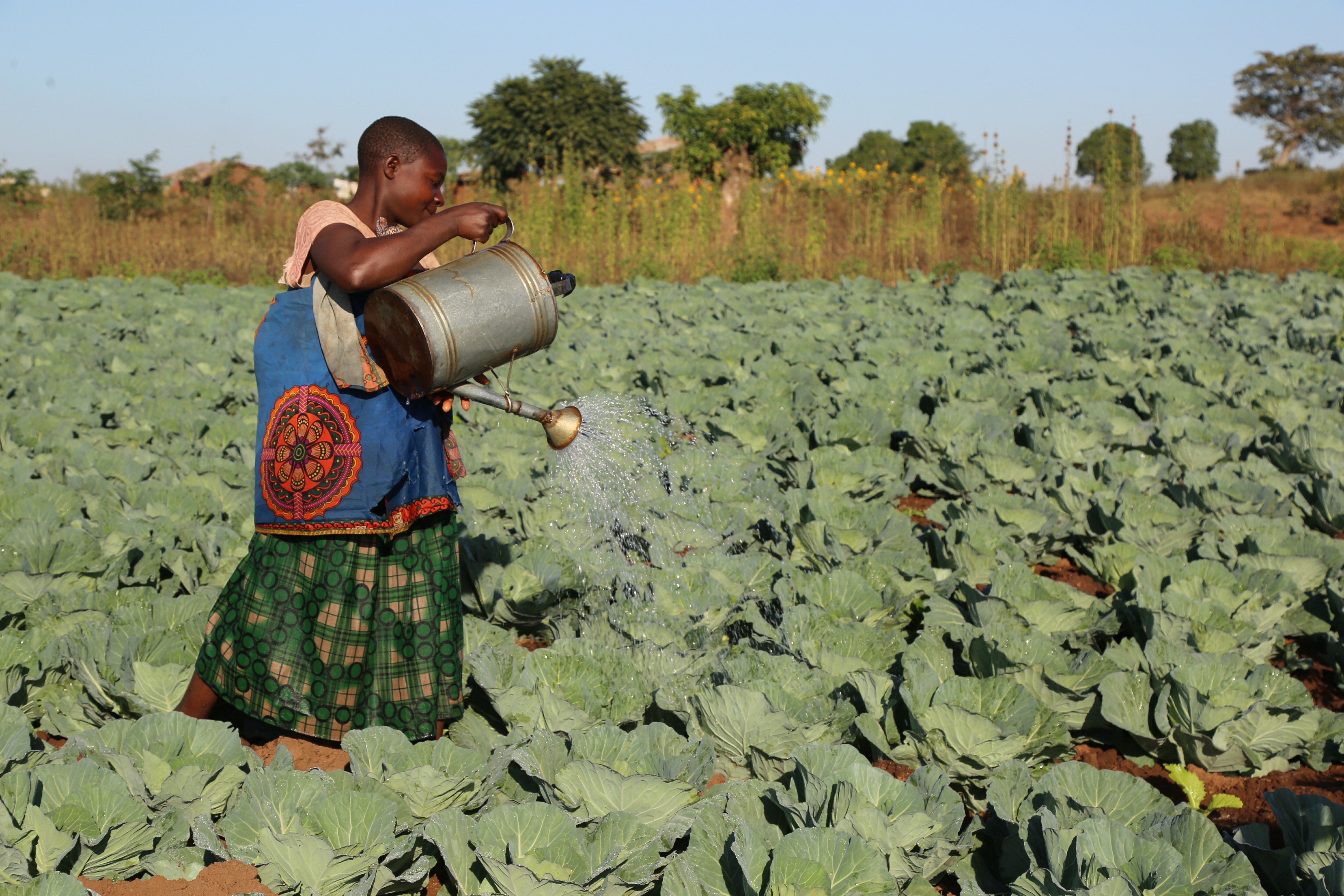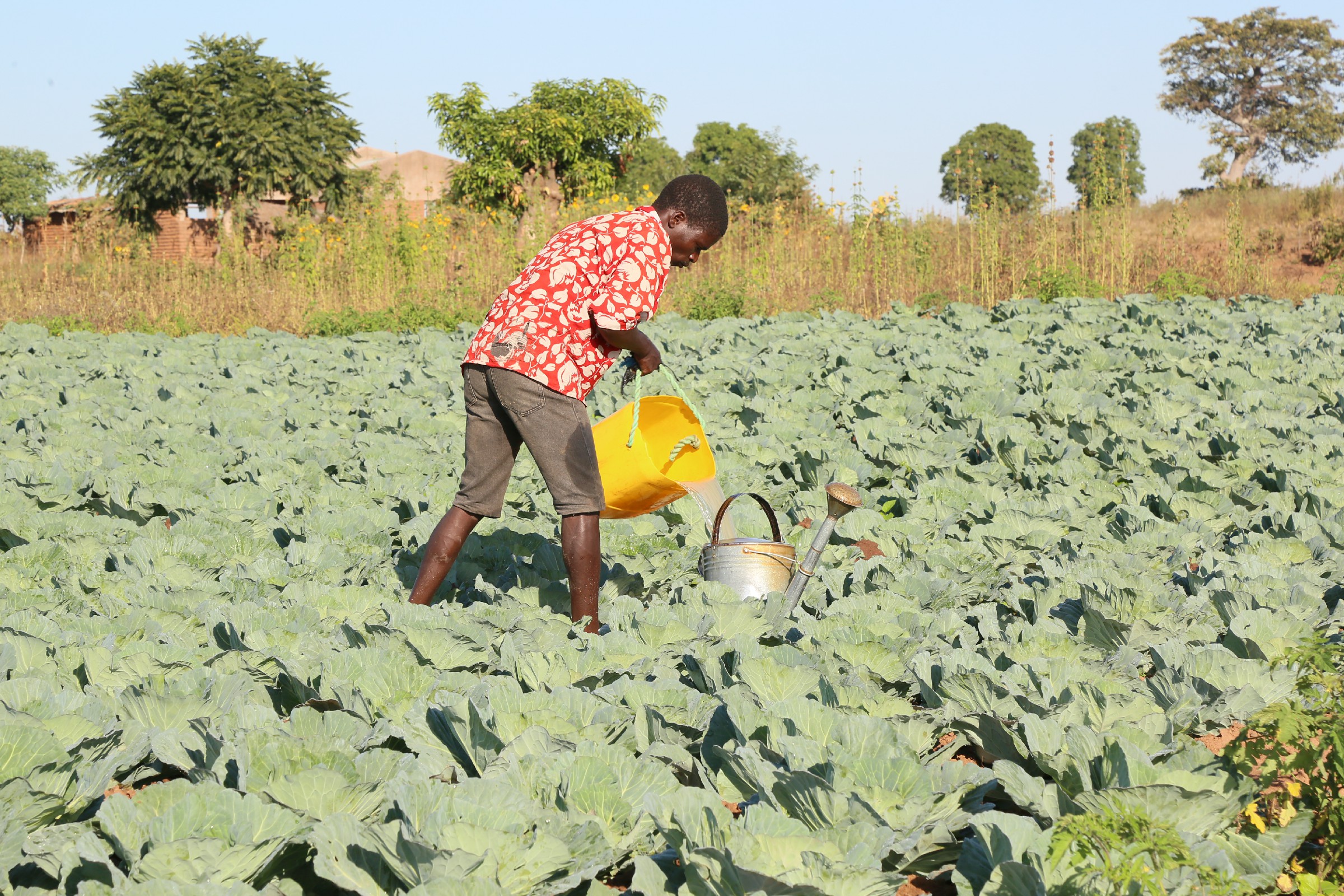Family working its way out of poverty

Jeffrey Thipa, 28, and his wife, Fanny, 30, have seen the worst part of poverty and they can hardly find the mouth with which to tell of their suffering. Over the past three years, their area, Mukwala Village, Sub-T/A Nyezelera, Traditional Authority Jenala in Phalombe, has received inadequate rainfall, resulting in perpetual hunger. He was only able to survive through casual labour in neighbouring Mozambique.
Their five children, Maxwell, 17; Brenda, 10; Kesten, 8; Rute, 3, and Comfort, about a year, have endured sleeping on empty stomachs and losing vital family property.
“Last year, a money lender seized my big nanny goat over an unpaid loan of K10, 000 ($14USD), [money] I had borrowed to buy food,” recalls Jeffrey, while shaking his head.
“Life has been tough. The hunger has even been affecting our children’s education because they do not concentrate in class when there is no food at home,” he adds.
“The good news is that this time we are walking out of this poverty trap,” chips in Fanny, as she waters cabbage and mustard vegetables, along Mangisa Village irrigation dam.
Jeffrey and Fanny are amongst hundreds of villagers within the area who are benefiting from an irrigation dam supported by World Vision Kamwendo. The water that was once idle after a road construction company left a dam has turned out to be a savior after World Vision challenged the community to take to irrigation.

As a family, Jeffrey and Funny have planted mustard vegetables and about 1,700 heads of cabbage from which they anticipate earning a minimum of K290,000 ($403 USD) over the next three months.
The situation of their children was worrisome, especially on their education.
Kesten, now in Standard three says he hated going to school on an empty stomach.
“I would be in class hungry and come home hungry and did not study well,” says Kesten, whose dream is to become a soldier in the foreseeable future.
Since the coming in of the idea to venture into irrigation, Kesten’s father, Jeffrey, is happy that the short and long term gains from their efforts will improve the welfare of their children.
 “We are very happy that we have got this opportunity. This irrigation farming will transform our family forever and my children will go far with school and have a right future,” he adds.
“We are very happy that we have got this opportunity. This irrigation farming will transform our family forever and my children will go far with school and have a right future,” he adds.
According to Dickson Maluku, one of the first people to benefit from the initiative, the dam is changing the lives of the people in the area through improved food security.
“Now, I harvest twice a year, whether there is drought or not. Sometimes I sell the green maize and make quick money which I use for things like soap and salt,” he says as he proudly points at the vast garden he was watering using the water from the dam.
Hermon Chakwana, a Community Change Agent in Mkhumba Area Programme, explains that World Vision has planted a water pump and a reservoir tank which the farmers use to water their crops around the dam, with the view of improving food security.